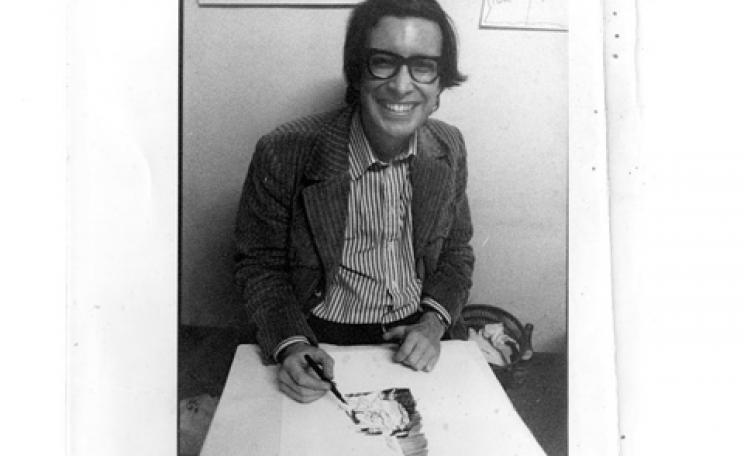'Blueprint for Survival’ is so timely it reads as though it was plucked from a modern-day newsstand. A radical and influential issue, it was both a catalyst for political change and an eerily accurate outline of global issues we still face today. Published prior to the 1972 UN Conference on the Human Environment, in Stockholm, the ‘Blueprint’ issue was so popular it reportedly sold about 500,000 copies, and was later published in book format.
‘Radical change is both necessary and inevitable because the present increases in human numbers and per capita consumption, by disrupting ecosystems and depleting resources, are undermining the very foundations of survival,’ wrote Ecologist founder Edward Goldsmith, Robert Allen and a team of colleagues, who named self-sufficient smaller communities, like those of native societies, as a model for sustainable living.
As part of a strategy for the future this forward-thinking team outlined ‘The Movement for Survival,’ which would be spearheaded by ‘a coalition of organisations concerned with environmental issues.’ This movement would eventually lead to the formation of the Green Party.
Today it would be easy to suggest that nothing has changed, that we continue to fight a losing battle when it comes to sustainability and economic stability. After all, with unemployment at 8.4 per cent, the UK is in the exact unsavoury economic position the ‘Blueprint’ predicted if confidence in the stock market were to plummet. ‘Were confidence to fall, stock values would crash, drastically reducing the availability of capital for investment and hence further growth, which would lead to further unemployment.’
When the Ecologist published its controversial call for change 40 years ago, people had only just begun to examine global warming and consider the perils of climate change. And the writers recognised a transformation would not come overnight.
‘We are sufficiently aware of “political reality” to appreciate that many of the proposals we will make in the next chapter will be considered impracticable,’ they wrote. ‘However, we believe that if a strategy for survival is to have any chance of success, the solutions must be formulated not from a timorous and superficial understanding of what may or may not be immediately feasible.’
But we are learning, if slowly. We may be tackling the same problems, but progress has been made. Four of the five organisations (Friends of the Earth, The Soil Association, Survival International and The Henry Doubleday Research Foundation, now called Garden Organic) that formed the original coalition are still active. Greenhouse gas emissions have decreased by 42 per cent since the 90s due to the switch from coal to natural gas for electricity generation, according to the ONS. And with farmers’ markets finding homes throughout the city and ‘eco-friendly’ part of mainstream vocabulary, there is hope for the future. And hope was an essential ingredient in Goldsmith and his colleagues’ eyes.
‘Indeed if we are capable of ensuring a relatively smooth transition to it, we can be optimistic about providing our children with a way of life psychologically, intellectually and aesthetically more satisfying than the present one,’ they wrote. ‘And we can be confident that it will be sustainable as ours cannot be, so that the legacy of despair we are about to leave them may at the last minute be changed to one of hope.’
| READ MORE... | |
 |
SPECIAL CONTENT The Ecologist December 1971: Japan’s ‘economic miracle’ Forty years ago this month The Ecologist reported on the environmental implications of the rise of the Japanese economy. In the wake of the recent earthquake and associated nuclear fears has it cleaned up its act? |
 |
SPECIAL CONTENT The Ecologist November 1971: rural to urban shift Forty years ago, the Ecologist wrote about problems associated with the flight of Spain's agricultural workers to city centres. |
 |
SPECIAL CONTENT The Ecologist October 1971: The extinction of whales? Forty years ago this month, Scott McVay predicted the impending extinction of many species of whales. Does the threat remain today, or has the battle been won? |
 |
SPECIAL CONTENT The Ecologist September 1971: the onslaught of globalisation 40 years ago Mike Allaby wrote about Tibetan exiles living in Wales and how their success points to hope for maintaining cultural diversity... |
 |
NEWS Ecologist founder Edward Goldsmith dies at age 80 Edward Goldsmith, the founder of the Ecologist and one of the world's foremost green thinkers, has died at the age of 80 |








